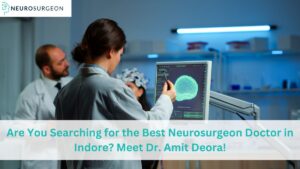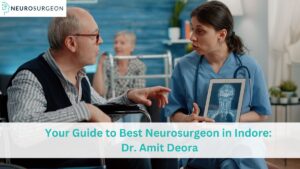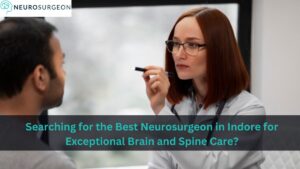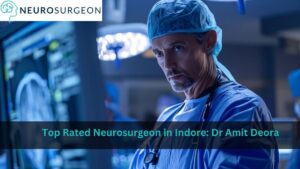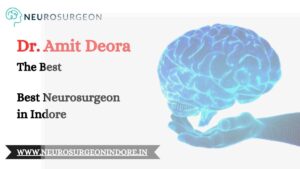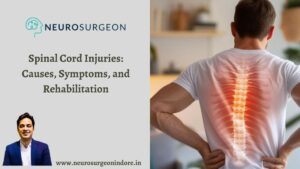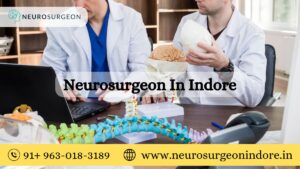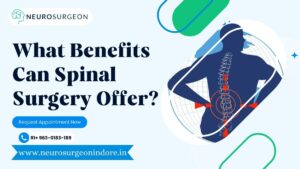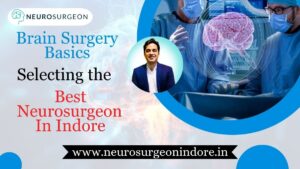You may have heard of neurosurgeons as the doctors who operate on the brain and spinal cord, but their role encompasses much more. As a medical specialty, neurosurgery focuses on the diagnosis and treatment of disorders of the nervous system, including the brain, spinal cord, peripheral nerves, and extra-cranial cerebrovascular system. While neurosurgeons are experts in performing surgery when needed, they also specialize in managing brain and spinal cord injuries and diseases in a nonsurgical manner.
With millions of Indians suffering a traumatic brain injury each year, neurosurgeons play an instrumental role in the treatment of many patients, whether through surgical intervention or conservative management. However, there are many myths and misconceptions about the practice of neurosurgery and the conditions they treat. This article aims to dispel some common neurosurgery myths and provide the facts about this complex medical field.
Table of Contents
ToggleMyth 1: Neurosurgeons Only Work on the Brain
This is a common misconception. In reality, neurosurgeons treat a wide range of conditions affecting the entire nervous system. In addition to brain surgery for conditions like brain tumours or aneurysms, neurosurgeons in Indore also perform surgery on the spinal cord for injuries like slipped disks or spinal stenosis, as well as peripheral nerves in the arms and legs. Some neurosurgeons focus specifically on spine surgery or pediatric neurosurgery.
The nervous system is complex, so neurosurgeons receive extensive training and education to properly diagnose and treat disorders impacting the brain, spinal cord, and peripheral nerves. On average, neurosurgeons study for 14 years after high school, including four years of medical school and 6-8 years of residency training. Most neurosurgeons become board-certified, demonstrating a high level of skill and competence.
Myth 2: Surgery Is Your Only Treatment Option
Surgery is not always the only or primary treatment option for patients with traumatic brain injuries or other neurological conditions. In many cases, neurosurgeons in Indore will first recommend more conservative treatments before pursuing surgical intervention.
Medication
For some conditions like epilepsy, migraines, or Parkinson’s disease, medication may be tried initially to control symptoms before surgery is considered. Medications can reduce inflammation, decrease pain, stabilize mood or movement disorders, and prevent seizures. If remedies are not effective or symptoms cannot be adequately managed over time, surgery may then be recommended.
Physical or Occupational Therapy
For specific injuries like concussions or minor bleeding in the brain, rest and physical or occupational therapy may be the best course of treatment. Therapy helps retrain the brain and body, improve balance and coordination, strengthen muscles, and ensure a safe return to normal activities. Surgery would only be considered if there were complications from the injury or if symptoms did not improve with therapy and time.
Lifestyle Changes
Making simple lifestyle changes helps alleviate or avoid the need for surgery. Getting more sleep, reducing stress, limiting alcohol intake, and eating a healthy diet have been shown to help with many neurological conditions. Quitting smoking can also have significant benefits, as nicotine negatively impacts brain health and the body’s ability to heal from injuries or disease.
While neurosurgeons are specialists in operative treatment, they consider surgery a last resort. They aim to exhaust all reasonable nonsurgical options and only operate when necessary to restore health and function. A comprehensive treatment plan will strive to improve quality of life through the least invasive means possible.
Myth 3: Neurosurgery is always risky
While neurosurgery does come with risks, as does any surgery, the notion that it is always dangerous is a myth. Advancements in technology, surgical techniques, and physician training have made neurosurgery far safer today than in the past.
Successful Outcomes
Modern neurosurgery has over an 80-90% success rate for standard procedures like lumbar laminectomies, cervical discectomies, and pituitary tumour removals. For some life-threatening conditions like brain aneurysms, neurosurgery can be essential to survival and complete recovery. With a board-certified neurosurgeon and facility, most patients experience minimal complications and return home within a few days.
Minimally Invasive
Today’s neurosurgical procedures are minimally invasive, involving tiny incisions, microscopes, and neuro navigation systems for precision. This means less pain, scarring, and recovery time for patients. Some procedures, like laser spine surgery and endoscopic brain surgery, can even be done on an outpatient basis.
Advancing Technology
Technologies like intraoperative MRI and CT imaging provide neurosurgeons in India with real-time views of the surgical area during a procedure. Ultrasonic aspirators break up tumours with sound waves and suction them away. Neuro navigation creates 3D maps of a patient’s brain or spine to guide the surgeon. These advanced tools allow for more accurate, targeted treatment with less collateral damage to healthy tissues.
Myth 4: Neurosurgery Is Not Accessible or Affordable for Everyone
While neurosurgery was once thought to be inaccessible or unaffordable for most, this is simply untrue. Advancements in technology, surgical techniques, and healthcare policies have made neurosurgery much more available and affordable.
Expanded Coverage
The Affordable Care Act expanded healthcare coverage to millions of Indians, granting many access to neurosurgery for the first time. Medicaid expansion and state healthcare exchanges allow those with low incomes or pre-existing conditions to obtain insurance and the medical care they need.
Minimally Invasive Procedures
Neurosurgeons now utilize minimally invasive surgical techniques that require smaller incisions, shorter hospital stays, and faster recovery times. Procedures like endoscopic surgery and stereotactic radiosurgery are often more affordable and accessible. Patients can return home within days and resume normal activities more quickly.
Advanced Technologies
Technologies like computed tomography (CT), magnetic resonance imaging (MRI), and intraoperative MRI provide neurosurgeons with real-time imaging to guide them during complex surgeries. These technologies give surgeons more precision, reducing risks and the likelihood of repeat surgeries. While advanced technologies raise costs, they also improve patient outcomes and reduce long-term healthcare utilization.
Myth 5: Neurosurgery Always Leads to Permanent Loss of Function or Cognitive Abilities
This is false. Neurosurgery techniques and technologies have advanced rapidly in recent years. Minimally invasive procedures, improved imaging, and new surgical tools allow neurosurgeons to access the nervous system with minimal damage. While any brain or spine surgery does carry risks, neurosurgeons in Indore can remove tumours, relieve pressure, stop bleeding, and repair nerve damage while preserving as much function as possible.
Post-surgical therapy and rehabilitation also play a crucial role. With hard work and time, patients can regain strength, mobility, speech, and cognitive skills. Some may experience lasting effects, but many neurosurgery patients go on to live entire, active lives with minimal long-term disability. The likelihood of permanent loss depends on many factors, including the nature and severity of the underlying condition and a patient’s overall health, age, and commitment to recovery.
Conclusion
In the end, neurosurgery is a complex medical field that encompasses surgical and nonsurgical care for some of the most sensitive parts of the human body. As you’ve learned, neurosurgeons are highly trained doctors who treat various brain and nervous system disorders using state-of-the-art techniques and technology.
While their work is often lifesaving, it requires a delicate and meticulous approach. By better understanding what neurosurgeons do and dispelling common myths about their role, you can feel more at ease if you or a loved one ever require their care. The brain is the control center of our existence, so we’re fortunate to have these skilled specialists to protect and restore this vital organ.


